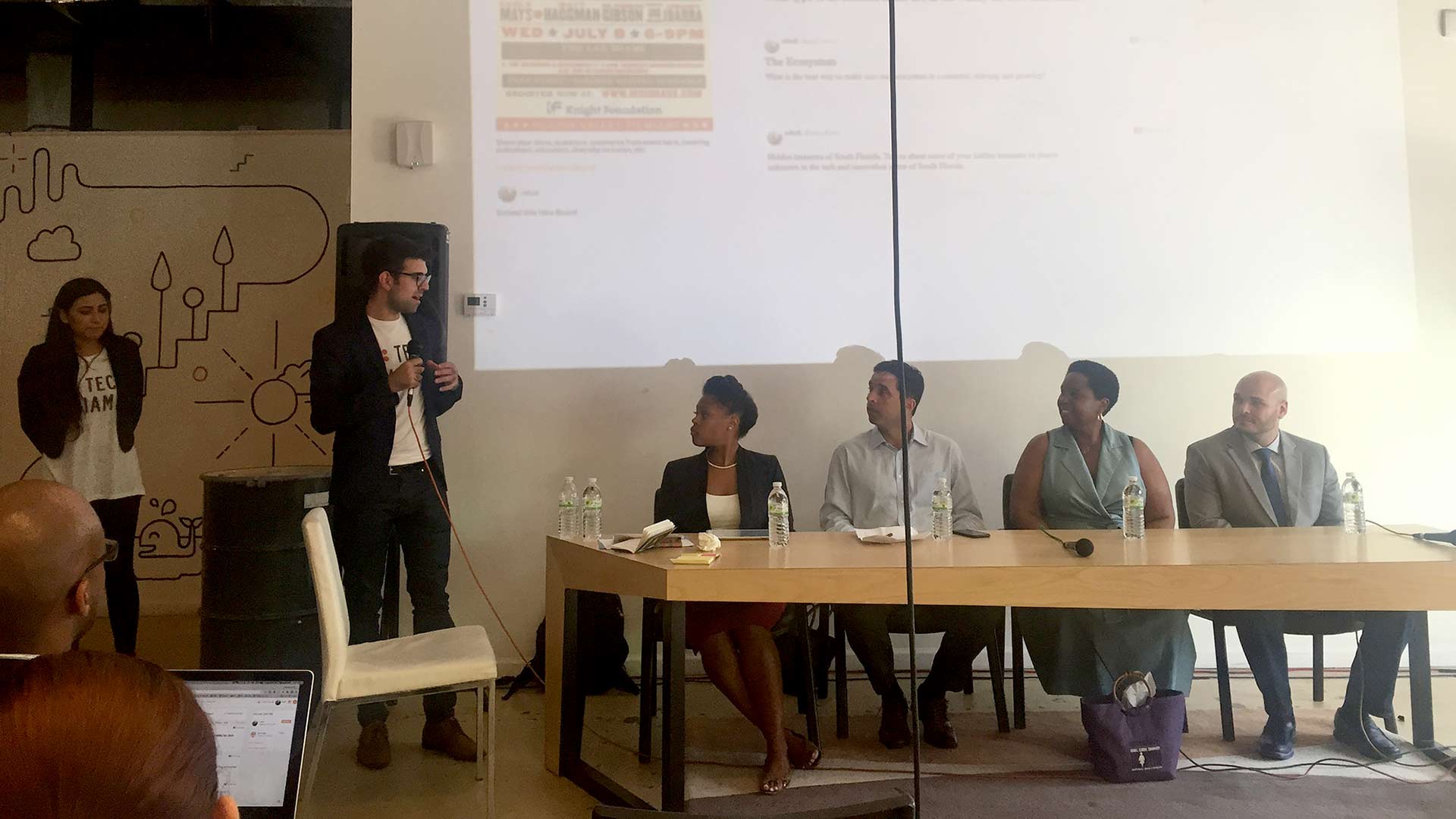
Digital Grass event promotes inclusion in civic innovation
Photo by Alec Schwartzman on Flickr.
“What does civic innovation mean to you, and how would you define it?”
Michael Hall, co-founder of Digital Grass, posed this question to a panel of civic innovators at The LAB Miami last week at “The Big Business of Civic Innovation.”
Digital Grass, a Knight Foundation grantee and technology and innovation firm, sponsored the event to help discover the necessary steps to keep local innovators in South Florida while maintaining diversity in the community’s entrepreneurial ecosystem.
The event’s panel included locals Matt Haggman, Pandwe Gibson and Armando Ibarra in addition to special guest speaker Carla Mays, a Silicon Valley entrepreneur and ecosystem builder. Mays took the first attempt at answering Hall’s question.
“Civic innovation has to do with government, inclusion, equity, and the innovation in public policy and technology,” Mays said. “It also deals with managing the disruption. When we come up with disruptive technology, it tends to put people out of work. My definition of civic innovation is equity and inclusion in the innovation process that moves us toward a more equitable and sustainable community.”
Haggman, Miami program director for Knight Foundation, followed Mays with a succinct vision for his ideal form of civic innovation.
“I think of it as people being able to pursue the ideas they wish to pursue, and the community having the tools and the wherewithal to be able to connect people and resources,” Haggman said.
Mays and Haggman sought to clarify the distinction between a springboard and an ecosystem, and to develop ideas to help South Florida reach the latter category. A springboard refers to a budding ecosystem that cannot provide enough capital or resources to its entrepreneurs, forcing them to relocate to survive, panelists said.
“A fully developed ecosystem is where you are connected to capital and resources and solving local issues while growing a market of talent,” Mays said.
According to this year’s Kauffman Index, Miami moved into second place in startup activity behind Austin and ahead of San Jose, which ranked third. Haggman pointed to South Florida’s diversity as one of the region’s strengths that distinguish it from other startup environments.
“Diversity is our great differentiator in Miami,” Haggman said. “As we talk about building this ecosystem, the more that we can create more ways in which different backgrounds, personal histories, daily routines and daily concerns collide … ultimately, the richer the set of ideas, the greater the impact.”
During the panel discussion, audience members connected online through Ideattr, an ecosystem-building startup that Mays advises. This event marked Ideattr’s first “Ideathon,” where audience members share their questions and ideas on an “IDEA Board” visible to the panelists. Many of the questions dealt with the status of Silicon Valley and Miami’s ability to reach similar heights. Gibson, the founder of EcoTech Visions, said Miami should not blindly follow the lead of other areas.
“Everyone is using the example of Silicon Valley,” Gibson said. “If you know the history of that area, you know it started as a military project. There was military funding and government money that brought people there with a particular mindset and skillset to develop what we look at today. That is not the issue in Miami. We cannot make the comparison at all. You have to look at communities based on what is there.”
Ibarra, a public affairs executive at Ai Advisory, agreed. Miami needs to find its own path.
“It’s about learning our identity,” Ibarra said. “Not all innovation needs to be technology related, we need to think about the things Miami has an advantage in, one of them being geography. There is a potential for physical goods over digital. We need to look at the bounty of the nature around us.”
Alec Schwartzman is an editorial intern for Knight Foundation. Email him at [email protected] and follow him on Twitter @AMSchwartzman.
Recent Content
-
Community Impactarticle ·
-
Community Impactarticle ·
-
Community Impactarticle ·


